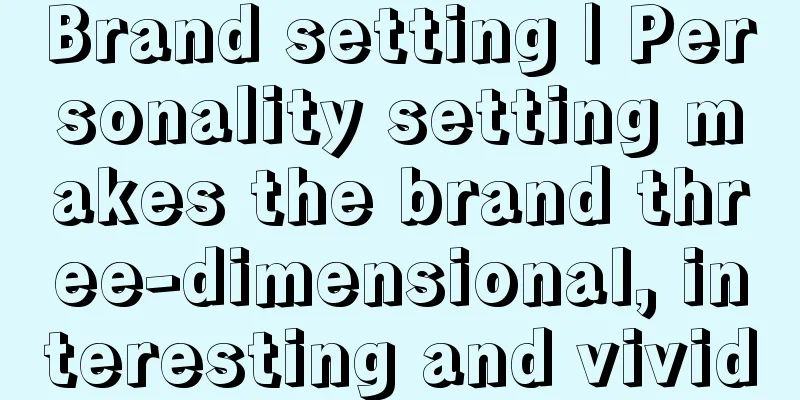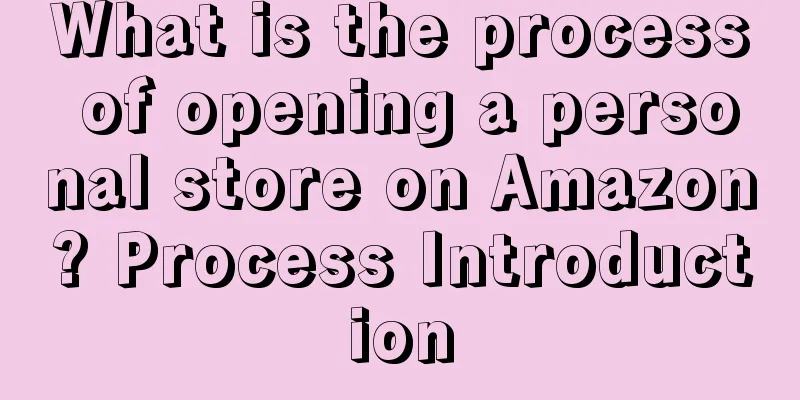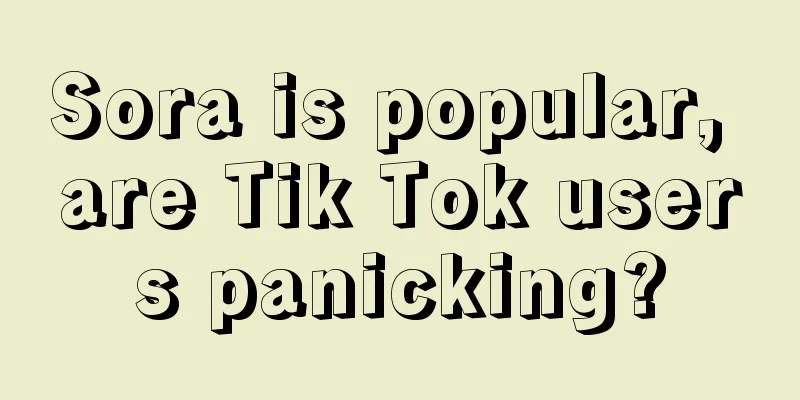What's the problem with Huaxizi?

This morning, a friend who works in publishing planning called me and we talked about why I insisted on separating branding and marketing into two different things, and I explained to her what a brand is. After listening to this, she suddenly realized and said: So, in a narrow sense, what we call brand is actually values, right? I said: Not entirely. I thought about it again and said: Brand is a choice made by an enterprise. These choices reveal its knowledge, pattern, values and skills. Accepting all comers is called selling goods. Only when there is selection can it be called a brand. 01So what are the so-called high-end brands? It is the one that has more knowledge and choices than others, and makes more restrained judgments among many choices. What we usually call "ugly eating" and "low" is essentially a contempt for "ignoring standards and not making choices". So, two words come up here: insight and restraint. In the recent Hua Xizi case, we can try to find the cause around these two words. How can a brand have more choices? For example, should I choose high-end or low-end pricing? Should I choose traditional aesthetics or Western style? Is the original intention to make money or influence the industry? Should I sell to children or the elderly? Should I build a platform or a product for the business model? Should I choose ToB or ToC for the sales model? The more similar choices a brand has, the freer it is. How do these choices come from? It’s from experience. Only when you have more knowledge can you have more options. Only when you have a broad knowledge can you have a rich mentality and more restrained behavior, and restraint can bring you sophistication. Sophistication can bring you true respect and recognition. True respect and recognition can generate loyalty and reputation, and then precipitate a true brand. In general, the chain is as follows: knowledge - choice - restraint - advanced - recognition - reputation - brand This link is actually nothing new. There has long been such a closed loop of argumentation in our traditional classics. It’s just that it was discussed based on the link of studying things to gain knowledge, cultivating oneself, managing the family, governing the country and pacifying the world. Its principle is consistent with the brand. Study things - acquire knowledge - be sincere - correct the mind - cultivate oneself - regulate the family - govern the country - bring peace to the world Otherwise, the link might be: Must succeed - Opportunity - Speed - Sales - Growth - Arrogance - Public opinion and crisis Let's apply some specific cases, and the possible links are as follows: Do something that makes you proud—what—what makes the most money—like cosmetics—operate on behalf of others—sell successfully—better create a brand yourself—how do foreigners do it—spend a lot of money on design, packaging, and marketing—I’ll do the same—are there any other opportunities in China?—domestic products are rising, e-commerce is flourishing—then I’ll focus on live streaming, and create a domestic brand that focuses on traditional aesthetics—try my best to sell products—a small failure—a big injustice—confront and talk back—compare eyebrow pencils and pencils to settle accounts—get crazy and feel wronged—bring out the vision of a high-end brand—find more hot spots—foreign athletes are “nationalized”—continue to play the patriotic card and sportsmanship card—why did I fail again? Is there anything wrong with this chain of thinking? It seems to be correct! Aren’t many new domestic brands established in this way? This “pragmatic” chain of thinking has indeed been a long-standing habit in the development of our enterprises. Not only entrepreneurs, but even investors think that this chain is very normal. If you have the opportunity, do it quickly! With the resources piled up and the traffic kept up, you will naturally have a brand if you sell more. What's the point of talking about branding if you can't even sell the goods? ! Please tell me, are such voices everywhere around you? 02First of all: If you sell more goods, will you naturally have a brand? There are many WeChat merchants selling a lot of goods, but are they branded? The merchants on PinXX sell the most goods, but are they branded? Even Yi Li Shen and Qin Chi Ancient Wine, which have appeared on CCTV, are they branded? Secondly: Does whether the goods are sold or not have anything to do with whether the brand is discussed or not? Does it cost the company a dime to talk about and think about brands? It costs the entrepreneur's time and insightful efforts. Sometimes, these are exactly the two things that companies are really unwilling to pay for and cultivate. Again: Will building a brand hinder sales? Selling goods is the duty of an enterprise, and sales is the core of business. This is irrefutable at any time. The purpose of building a brand is to enable an enterprise to sell goods for a long time, to sell goods at a premium, to sell goods with guarantees, and to enable the enterprise to sell goods and make money! So, what exactly is the problem with such companies? In one sentence, they focus on marketing but neglect branding. When marketing is popular, branding has no value. Once marketing goes wrong, the brand's ability to protect it is very weak. If we look into its essence, it is what I said before: there is something wrong with the knowledge system and restrained thinking behind the brand. 03With this incident as a turning point, four phenomena will occur one after another: 1. Marketing knowledge is no longer scarce, but brand insight is becoming increasingly difficult.The marketing formula, sales routines, marketing information, etc. in the enterprise become explicit knowledge. The underlying knowledge about corporate brand building will become the most scarce asset in the enterprise. 2. Many things that are mistakenly identified as “public relations problems” or “psychological problems” may simply be “lack of experience.”For corporate brands, public relations problems occur frequently, and for a personal brand, psychological problems occur frequently. In many cases, it may not be because of insufficient public relations efforts, but psychological problems, which may most likely be caused by "lack of experience." 3. Knowledge is the skeleton of a brand, relationships are the flesh and blood of a brand, and experience is the skin and fur of a brand.If you are eager to talk about experience and relationships without being based on knowledge, you will be too eager for quick success and your corporate brand will become "soft on the surface". Knowledge is the strongest underlying pillar of a company and an individual. 4. The shock brought by insight is direct, and the driving force generated is concrete.There is nothing wrong with the ambition to become a "high-end brand" based in China and going global. The question is: what is a "high-end brand"? There are many different opinions here. Just like the view of what a "university" is, some people think that a university should have tall buildings and have enough enrollment. However, in the view of Mei Yiqi, the president of Tsinghua University many years ago, "A university is not a place with tall buildings, but a place with great masters." Behind this is the view. Such views are actually the result of learning from other people's cognition and other cases. Only with "sincerity and awe" can we truly absorb the views, and then we will have the will to execute them. "Seeing the good is more important than anything else." After truly seeing and agreeing with it, everyone actually knows what to do. This is also the real meaning behind why many people must send their children to prestigious schools and buy housing in school districts. Recently, I have been reading a lot of information about Huaxizi to understand the entire brand development process. I feel regretful while reading it. In my heart, I really hope that China can really produce more and more "high-end brands" and not let more brands stop moving forward because of the problems encountered in the Huaxizi case. Author: Li Qian WeChat Official Account: Li Qian Talks About Brands This article was originally published by @李倩说品牌 on Operation Party. Any reproduction without permission is prohibited. The title image is from Unsplash, based on the CC0 agreement |
<<: Video account Double 11 incentive policy is here
>>: Is there a chance for Xiaohongshu to win the Double 11? How to do it?
Recommend
What are the salary packages at Alibaba International Station? How does it operate?
In addition to some stores, Alibaba International ...
Marketing keywords that are popular on the Internet in April
This article summarizes the hot online marketing b...
Video accounts "open the floodgates" for local life, and do not want to cross the river by following Meituan and Douyin
Video accounts have explored local life and are fu...
8,200 words of practical experience in operating Xiaohongshu, no marketing but only practical stuff!
As a rare traffic depression, Xiaohongshu still ha...
"Black Myth: Wukong": How to make a good product?
Black Myth: Wukong has redefined the heights of do...
B station up masters collectively stopped updating, creators' operations should meet these three points
Introduction: Starting from the aspect of power, m...
How about opening a store on eBay? Does anyone still use it?
When it comes to cross-border e-commerce platforms...
How to do data analysis when user growth occurs?
User growth is an unavoidable topic when working o...
Weibo Ge Jingdong: The big transformation of the founder’s IP, evolving from an internet celebrity IP to a leadership IP.
This article uses an interview with Ge Jingdong, t...
What kind of platform is Fordeal? Can I sell counterfeit goods?
Among the numerous e-commerce platforms, Fordeal, ...
How to open a store on eBay? How to charge?
eBay is an overseas purchasing platform that provi...
Why is Hema’s marketing so addictive?
Nowadays, good marketing is undoubtedly a crucial ...
How to collect payments when running a local store on Shopee? How does the Shopee platform transfer payments?
There are two types of stores on the Shopee platfo...
How long does it take for something to arrive on Amazon Japan? How long does it usually take to ship?
When buying things online, what people are most co...
If you want to open a small shop in your hometown, let me first take a look at the business experience I learned in the sinking market.
Introduction: Brand marketing methods in the sinki...









